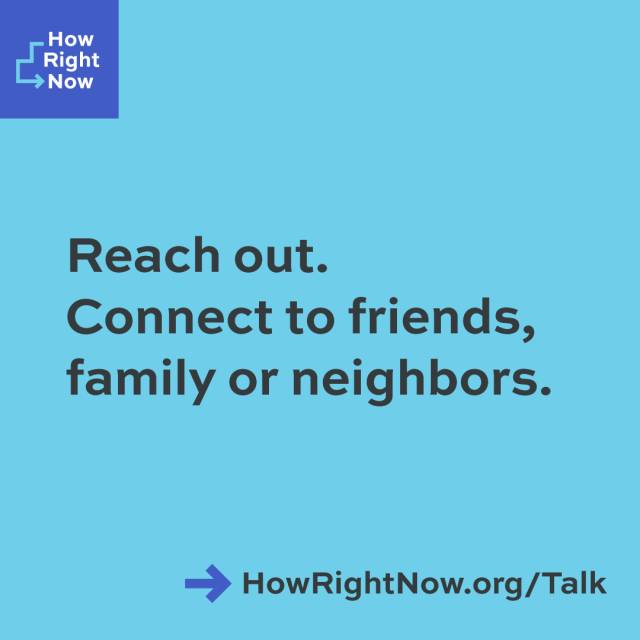You are here
How Right Now: Coping With Corona One Year Later
The shock of encountering empty store shelves. That unexpected email saying your workplace or school was closing. The news that Tom Hanks was in the hospital with COVID-19. The devastating realization that someone you know had fallen ill with this strange and deadly new virus.
Most of us remember exactly where we were when we first realized that coronavirus was going to significantly impact our lives. For many, that day was March 11, 2020, when the World Health Organization declared a global pandemic. That evening, the NBA announced it would suspend its season after Utah Jazz center Rudy Gobert tested positive for COVID-19.
Now, a year later, we’re pausing to take stock of what we’ve been through—and the emotions this experience has brought to bear. NPR recently created the hashtag #TheMoment, in the hopes that remembrances of those early days of the pandemic could be shared and discussed. And those who’ve responded describe the sadness, fear, anxiety and loss they felt, and are still feeling.
The mental toll has been overwhelming. In a recent report from Mental Health America, the number of people seeking help for depression grew 62 percent over 2019, and those taking the screening test for anxiety jumped 93 percent.
The CDC Foundation, which has been working throughout the pandemic to support the Centers for Disease Control and Prevention (CDC)’s response, recognized the growing need for emotional support in 2020, and joined with partner organizations to create How Right Now.
The How Right Now campaign provides actionable steps and resources for whatever feelings you may be experiencing at any given moment, including anger, loneliness and grief, among others. The website, HowRightNow.org and its Spanish-language site QueHacerAhora, was specifically developed to provide information and tools to help reduce stress, increase coping skills and provide links to those in need of mental health, social service or other direct aid.
“As we reflect on the past year, we know that people will be experiencing a variety of emotions,” said Amelia Burke-Garcia, PhD, MA, program area director at NORC at the University of Chicago, which led development of the campaign. “Our research has shown that people want actionable steps they can take to care for their emotional well-being. How Right Now provides resources that can help.”
A few of these recommendations include:
- Practicing gratitude for the things and people in our lives
- Reaching out and connecting with friends, family and neighbors
- Taking time to grieve all the losses you’ve experienced.
There’s also hope on the horizon, as safe and effective vaccines, combined with continued mask-wearing and social distancing, have begun to have a positive effect on our communities. But the crisis is not over yet, and for those who need help, HowRightNow.org is available 24/7 with support and resources.

